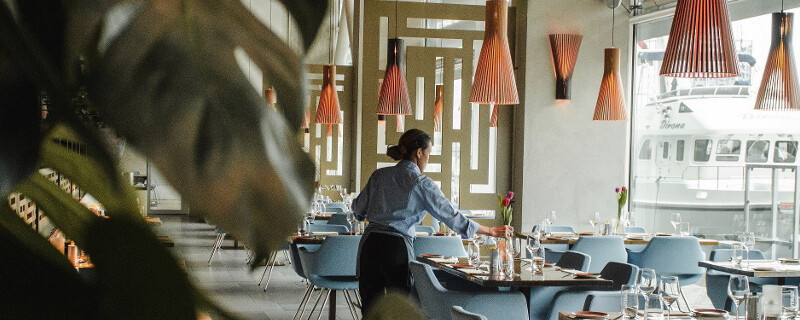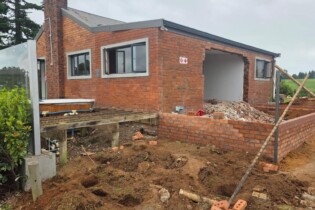
Rosemary Anderson, national chairperson of FEDHASA, shares how the hospitality industry is faring in the aftermath of the pandemic, as well as what is needed to revive it to its former health.
FEDHASA (the Federated Hospitality Association of South Africa) is the umbrella trade association for the hospitality industry. This includes hotels, restaurants, conference centres, caterers, self-catering accommodation, home hosting establishments (B&Bs and guest houses), clubs, taverns, shebeens, suppliers and trainers, consultants and service providers to the hospitality industry.
Overseeing this significant portfolio and responsibility is Rosemary Anderson, who was appointed as national chairperson of FEDHASA in 2021 – a period when the hospitality sector was taking a great deal of strain. She says that the experiences of different types of businesses have varied greatly throughout the pandemic.
A scattered recovery
“Most hospitality businesses that managed to survive the two-plus harsh years of government restrictions are operational again, except for a few four- and five-star hotels whose focus is almost entirely on corporate or international inbound travel. These markets have yet to recover sufficiently for these hotels to justify reopening,” she explains.
Looking at the Tourist Accommodation statistics for July, issued by Statistics South Africa, Rosemary says, “When we split the July figures into different accommodation types, we see that accommodation classified as ‘other’, that is lodges, B&Bs and self-catering, has led the charge and achieved almost 26% more income in July 2022 vs July 2019. This type of accommodation has consistently outperformed other types in terms of recovery this year.”
She continues, “Many restaurants, pubs and catering companies did not survive the restrictions. Those that did survive have reopened, but many have been forced to reduce their menu to retain acceptable gross profits and consider low weekday trade and steep increase in food prices. Eateries are struggling to balance offering affordable prices and achieving acceptable profits to justify staying in business.”
Weekday trading has taken a knock
South Africans are facing several financial woes, from job losses to a weakened rand and increased living costs. Anderson says, “As disposable income has been on the decline, no longer keeping up with inflation, we see lower footfall during the week for hospitality and dining businesses. Weekends are back to pre-Covid levels, however.”
This trend is also reflected in the accommodation sector. Schalk Cilliers, CEO of ATKV Resorts, says, “Weekend accommodation both in chalets and camping is buoyant, but weekday occupancy is still below pre-Covid levels.”
It turns out that South Africans remain willing to spend their money on takeaways, though. Anderson says, “Takeaway businesses did do very well during Covid and continue to do so. Many restaurants that embarked on a takeaway offer during the restrictions have continued to do so and are reporting good revenue to supplement their traditional sit-down restaurant income.”
Overall, South Africa’s hotel occupancies do not compare favourably
Statistics South Africa also reports that total income for the hotel sector in July 2022 is 14% lower than total income in July 2019, while occupancies are also lower, sitting at 35.6% vs 47.3%.
Figures from data intelligence group STR, which provides market data on the global hotel industry, puts total occupancies for the hotel sector in July at 53.3%.
Tourist arrival figures to South Africa for July indicate that the country is still far behind 2019 levels. For Europe, the source of most of our key traditional source markets, South Africa is 36% behind 2019 levels. The biggest lags are from France (-45%), Germany (-43.9%), Italy (-42.5%) and the Netherlands (-40.7%).
Global travel intelligence firm, ForwardKeys, confirms that South Africa’s current and future arrivals are lagging behind East Africa competitors and the global average.
FEDHASA’s role in recovery
FEDHASA played a critical role for its members as the pandemic wore on, both in terms of informing them about the evolving health and safety protocols, as well as providing practical ways for businesses to continue operating.
It also challenged government on those regulations that unfairly impacted the hospitality sector and threatened its survival, which is something it continues to do today, in order to help prevent further closures and job losses.
Another critical role it took on was putting pressure on insurance companies that were delaying business interruption cover pay-outs. (Subsequent legal action saw these insurance companies being ordered to honour these claims, but sadly this judgment came too late for the many businesses that closed and people who lost their jobs.)
“The hospitality and tourism industry could indeed be the silver bullet to address the inhumane unemployment problem we have in South Africa.”
Anderson adds, “FEDHASA also provided industry input into a document outlining the enabling environment required for tourism to deliver on its economic promise for South Africa, which was shared with Minister [of Tourism] Lindiwe Sisulu. This document provided a list of all areas requiring government intervention, with detailed solutions to such problems as visa restrictions, liquor licensing stalemates and other red tape hampering the industry. If this practical list is implemented, it will unlock the tourism industry’s great potential to employ more South Africans and contribute to growing South Africa’s stagnant economy.”
She believes that if this is done, “The hospitality and tourism industry could indeed be the silver bullet to address the inhumane unemployment problem we have in South Africa. However, government must embrace an all-of-government pro-tourism approach and stop introducing unnecessary obstacles that stifle the industry’s growth.”
About Rosemary Anderson
Rosemary Anderson is the national chairperson of FEDHASA, the voice of hospitality in South Africa. In addition to running hospitality and tourism businesses in South Africa and the UK, Anderson has almost three decades of personal experience in and perspective on the industry. Consequently, she is often called on to comment as a thought leader on hospitality issues, ranging from government support to business constraints and ease of doing business.
Married with children, Anderson is particularly passionate about creating an enabling environment for employment both in the hospitality and tourism sector.
Cover image by Louis Hansel on Unsplash







